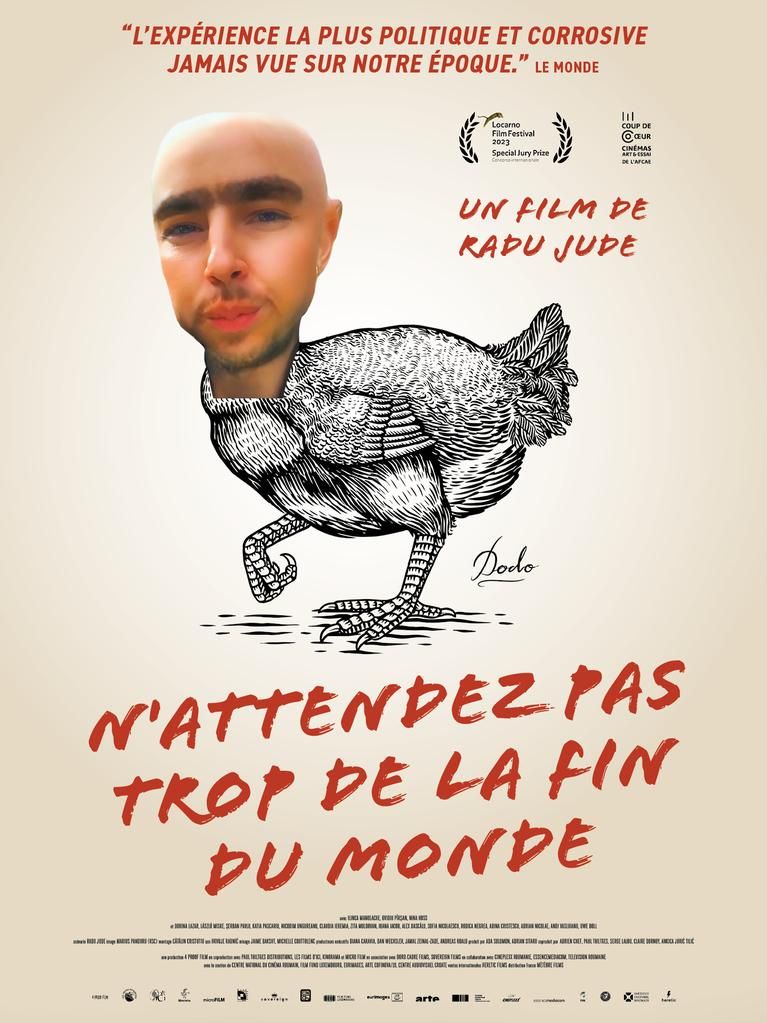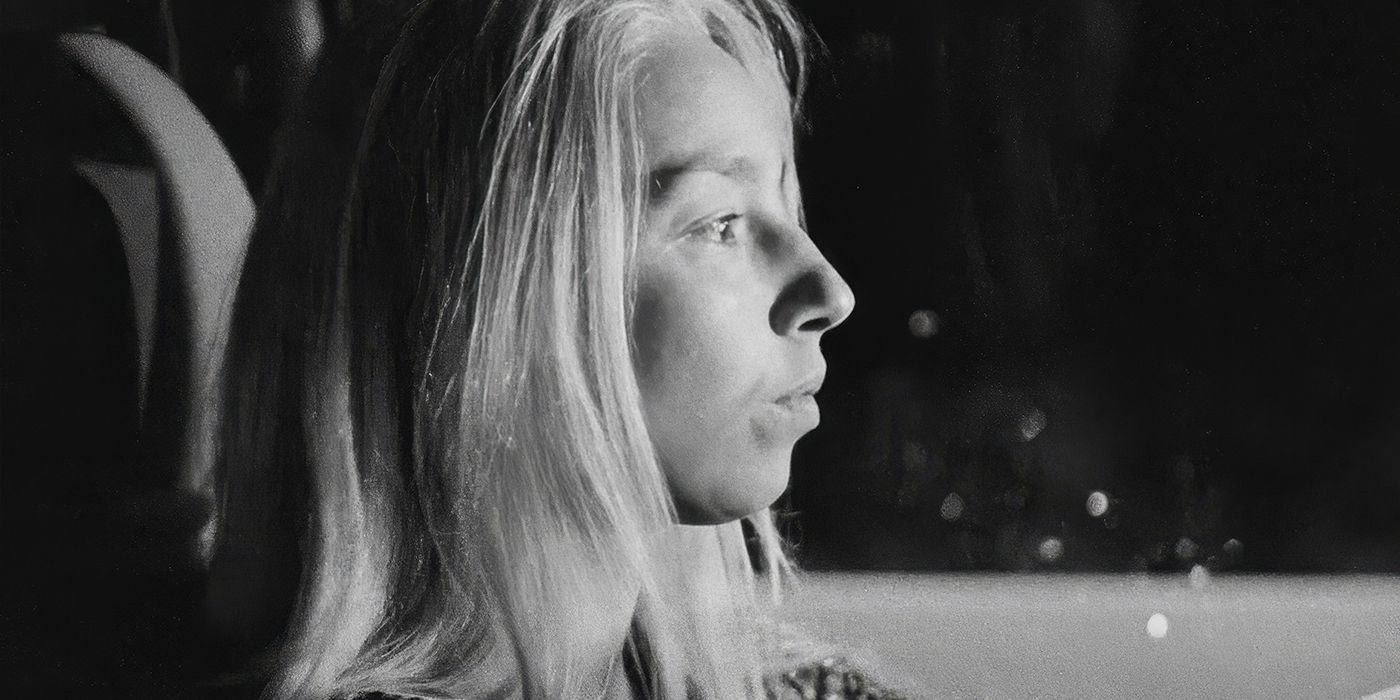The Big Picture
- Do Not Expect Too Much from the End of the World is a scathing satire of modern exploitation.
- The film follows Angela as she drives around to find candidates for a production about workplace safety.
- The movie culminates in a powerful closing shot, showcasing the absurdity and cruelty of modern exploitation.
Do Not Expect Too Much from the End of the World is a great movie about a bad life. Written and directed by Radu Jude, it is a darkly funny work that is also one of the most spectacular and quietly astounding movies of 2024 thus far. Yes, it did have its premiere back in festivals during 2023, but this year is the moment where it’s finally getting a wide release through Mubi. The wait was well worth it. This is because it is a film that paints a portrait of a life that is painfully ordinary yet could not be more urgent to reflect on. It is that of an overworked and underpaid employee who spends hours working for people who couldn't care less about her, including her well-being and safety, that finds some form of release in making vulgar TikTok videos using a face filter à la Brian Jordan Alvarez. These are the perils of modern life.
The film uses all this as an entry point to create a scathing satire of modern exploitation that takes aim at everything from selling out to the way companies scapegoat individuals to cover their asses before culminating in one of the most effective extended closing shots of recent memory. Praised by everyone from John Waters to Edgar Wright, it also has much to say about the manipulative nature of filmmaking and even includes a cameo from the infamous Uwe Boll. It truly has it all. Expansive yet focused, it is a work that is dense in terms of its ideas while also making room for more delicate emotional notes when you least expect it to.
What Is 'Do Not Expect Too Much from the End of the World' About?
The driving force of the film is Angela, played by a pitch-perfect Ilinca Manolache, who works as an assistant in Bucharest. She spends her very long day driving around to film audition videos for a work safety video that an enormous company is supposed to put together. Each of the people she talks to has suffered a serious injury, be it loss of fingers or the ability to walk, though are now hoping to make a bit of money from taking part in this video. No matter who they are or the specifics of their story, they are all expected to essentially take the fall by saying they should have been wearing a helmet when the systemic issues all go so much deeper than that. However, this is not something that Angela has time to be concerned about. Instead, she is mostly perpetually exhausted as she gets up at the crack of dawn and spends hours driving. When she tries to talk to her boss about needing to rest and that she is concerned she could fall asleep at the wheel, her concerns are routinely dismissed.
So she keeps driving. And driving. And driving. Then she drives some more. Going to various places throughout the city, she gets some small comfort out of spitting in the food she is told to bring to a meeting. Jude puts Angela's work routine in conversation with the 1981 film Angela Moves On by Lucian Bratu, which follows a woman who works as a cab driver in the same locations that Do Not Expect Too Much from the End of the World takes place in. The shared names and the fact that the actress from that film, Dorina Lazar, also appears in this one at a key point is a fundamental part of the text. It brings into focus how, despite being shot and set decades apart, each of the characters is facing down similarly exploitative realities. In many ways, the present is even worse, as we see how Angela is not given any benefits and is certainly vastly underpaid when she is compensated at all. Her life is one where she is always facing down an open road with little promise of stability at the end of it. Keeping her head down offers no relief.
Jude captures this not through big grand proclamations about the casual cruelty of the world, but instead, through us simply being with Angela on the road. The repetitive nature of it is agonizing as you wonder how much longer she can drive. There are darkly comedic scenes sprinkled throughout, but the experience of just being on the road is one defined by the grim routine of trying to stay awake, so you don't get in an accident. Shot primarily in black-and-white—with key notable exceptions being when she films her TikTok videos, the interjections from Angela Moves On, a brief montage of roadside memorials, and the agonizing final shot—it is as if life itself has been drained of what gives it joy. Angela attempts to find moments of respite where she can, whether in a brief meal or with the videos she makes, though she is also trapped in an unending cycle.
Without putting her on a pedestal, the fact that she is often the only person who shows brief compassion for those selling books on the roadside or asking for money to survive proves particularly potent. Even when she too is living a life of precarity, she is trying to help others that are similarly struggling. Where the people she works for remark callously on those who have been seriously harmed when working at the company, which includes a brief yet great performance by Nina Hoss of 2022’s terrific TÁR, Angela is at least aware of the realities of their situations. That this is not enough to make any substantive changes or alter the course of the production the film is building to only makes it all the more painful to take in.
One fleeting conversation Angela has with a doorman at a hotel where she remarks on how she “Can’t go on like this” and he wryly says “That’s what you think,” is the film’s entire thesis. When facing such circumstances alone, all one can do is endure. That Angela remarks to one of the injured subjects about how he should have formed a union at the beginning of the film makes clear there is the potential to push back against this reality, but there remains much that is working against it. And yet, it is in cinema like this where the most critical truths are laid bare about what is at stake in our every waking moment of always working.
'Do Not Expect Too Much from the End of the World' Creates a Perfect Ending
Without going too much into detail about what this culminates in, the unbroken shot that Jude closes with is one of the best you’ll see this year. Feeling almost similar to the way we saw an entire meeting play out in last year’s riveting R.M.N., it is simply about observing the production that Angela spent many hours finding a candidate for. As we watch the insulting way this person and their family are treated, making clear that they are being used for what is essentially propaganda, the discomfort of it all is something Jude doesn’t let us look away from. After an entire film spent excavating the topography of modern exploitation, this is one final portrait of what it looks like. It is absurd, infuriating, and commonplace as we see the production team jettison any values they may have pretended to care about to create something quietly monstrous. The final line of the film, when all of this has finally stopped, feels like Jude speaking directly to us as a character voices the anger we are feeling in this scene. While the shot holds us at a distance, this pulls us up close to a final moment of feeling.
The world the characters inhabit, much like our own, is defined by exploitation that will cast you aside like you are nothing. That Jude’s final shot lingers with those everyone else has wandered away from provides a poetic close just as it reminds us how deeply broken existence remains. While the world and the forces that be will use them however they can for their own ends, he never lets us look away from their humanity just as many seek to strip it away. One can only hope those in similar positions could also see with such striking, truthful clarity before it's too late. If not, we'll just have to take back to the road until eventually we too crash and get cast aside as Jude shows us in the film's most profound scene. We all are not far from being a cross on the side of the road. As we hurtle onwards through a life defined by working, we too may end in such a place. But hey, maybe we just need to wear a helmet.

Do Not Expect Too Much from the End of the World
'Do Not Expect Too Much from the End of the World is a scathing satire about modern exploitation that is also one of the best movies of the year thus far.
- Writer-director Radu Jude fully takes us into the life of an overworked assistant as she must drive all over Romania.
- Ilinca Manolache is pitch-perfect, capturing the sense of perpetual exhaustion that Angela must endure in her day.
- The film's final unbroken shot brings everything into focus perfectly, revealing the dark absurdities of modern exploitation.
Do Not Expect Too Much from the End of the World is now available to stream on MUBI in the U.S.


